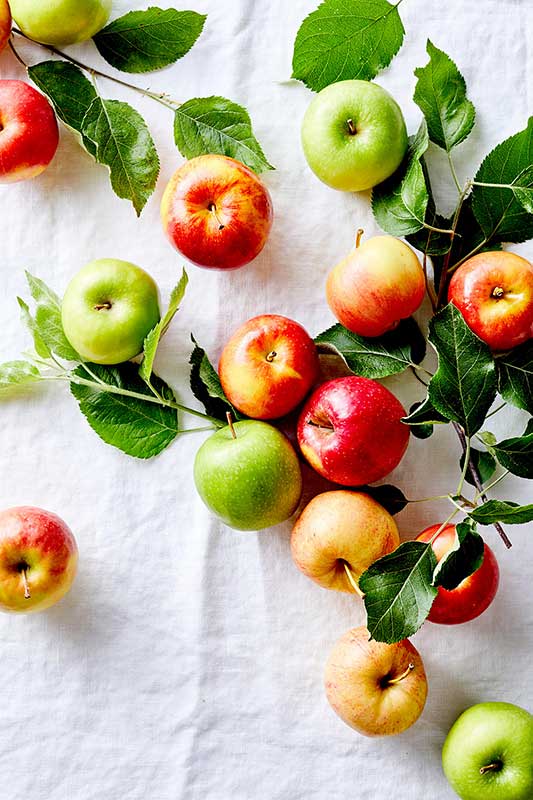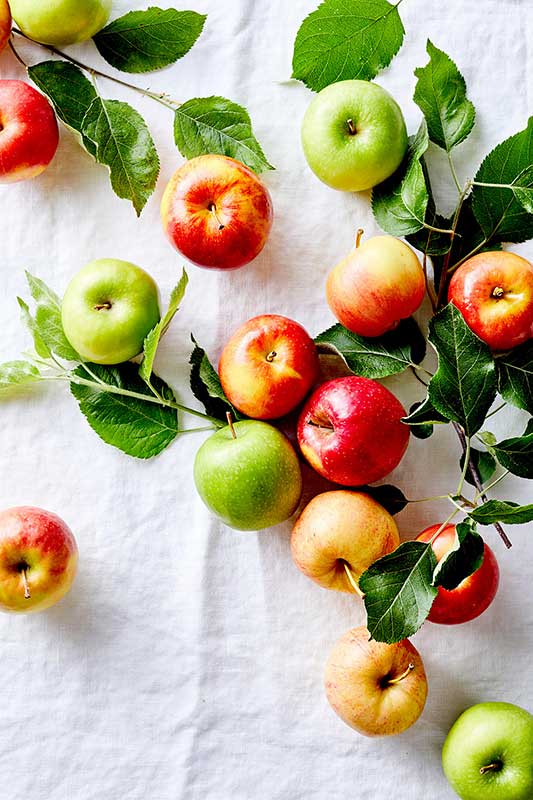All fruits and vegetables are full of healthy nutrients, but these seven foods are some of the most heart-healthy fruits available. Add them to your grocery list now.
 |
| CREDIT: BLAINE MOATS |
Fruit (yes, fruit!) has the power to improve your heart health. That’s because it’s loaded with nutrients that can help lower your cholesterol and blood pressure, and help you lose weight—all three of which are good for your overall heart health. Plus, research shows that people who eat four or more servings of whole fruit a day significantly lower their risk of developing high blood pressure. “Fruits are packed with fiber and are also a rich source of potassium. Both higher potassium and fiber intake help prevent hypertension and are associated with lower blood pressure among those with hypertension,” says Donna Arnett, Ph.D., Dean, College of Public Health, University of Kentucky.
Fresh, frozen, canned, and dried are all great ways to add more fruit to your diet. Do aim, however, to eat whole fruit as much as possible to reap the most rewards.
The Best Fruits for Your Heart
These seven fruits are best for your heart and should be readily available at your local grocery stores.
Apples
Turns out an apple a day could actually keep the doctor away. Not only are apples a good way to add fiber to your diet and good-for-you flavonoids, but a couple of studies also found that people who regularly eat apples are less likely to develop high blood pressure.
Seek out shiny-skinned applies that are firm and free of bruises. Then, store them in the refrigerator fruit crisper to extend their juiciness and crispness.
Apricots
Apricots deliver a handful of vitamins (A, C, E, and K), plus fiber. And their orange hue comes from carotenoids, an antioxidant. Fresh apricots have a fleeting season from May to August (look for fruits that are firm and plump). Fortunately, dried apricots deliver the same nutrients, and people who eat about a ⅛ cup of dried fruit (that’s just 2 Tbsp.) each day have healthier diets and weigh less compared to those who don’t eat much if any, dried fruit (according to a study in the journal Nutrition Research).
Bananas
Eat a banana and you’ll get vitamins B6 and C. You’ll also get fiber, potassium, and magnesium—all three of which are key nutrients that help keep blood pressure in check. When shopping, look for firm bananas at any size as size doesn’t affect quality.
Berries
Whether it’s blueberries, blackberries, raspberries, or strawberries that you’re drawn to most—all are great sources of vitamin C and fiber. And eating a high fiber diet has the potential to help lower cholesterol and your risk of heart disease, according to the Academy of Nutrition and Dietetics. Fiber can also help keep your weight in check—another boon for your heart! Don’t forget: frozen berries are just as healthy as fresh so you can enjoy berries year-round.
Grapefruit
Serve up grapefruit for a dose of vitamin C, potassium, and fiber. A single serving of grapefruit delivers 2.5 grams of fiber or about 7% of your daily quota. Plus, in a study of women (published in 2014 in the journal Food & Nutrition Research), those who regularly ate grapefruit or drank its juice had higher “good” HDL cholesterol, lower triglycerides, and weighed less.
When shopping, look for a grapefruit that’s heavy for its size and springy to touch. At home, store it in the fridge, but for a juicier fruit, serve it at room temp or warm, not chilled. Remember that grapefruit and its juice interact with some prescriptions, so check with your doctor before adding it to your meal plan.
Oranges
This citrus favorite is a real heart health winner: research shows that the flavonoids in oranges (naringenin and hesperidin to name just two) have strong antioxidant and anti-inflammatory powers. They also may help improve blood pressure and can ward off your risk of developing atherosclerosis. Like the other fruits in this list, oranges also give you potassium and fiber. Look for oranges with small navels (yes, the indentation on the non-stem end of the orange is called a navel). A large navel means it’s overripe.
Peaches
Pick up yellow peaches for a hit of beta-carotene (and these recipes). Men who have higher blood levels of beta-carotene were less likely to die of heart disease or stroke, per a study published in 2018 in the journal Circulation Research. Peaches also deliver fiber, potassium, and vitamins C, E, and K. Look for fruits with a strong, sweet smell that give ever so slightly when touched.
Important Notice: This article was originally published at www.bhg.com by Brierley Horton, MS, RD where all credits are due.
The watching, interacting, and participation of any kind with anything on this page does not constitute or initiate a doctor-patient relationship with Dr. Farrah®. None of the statements here have been evaluated by the Food and Drug Administration (FDA). The products of Dr. Farrah® are not intended to diagnose, treat, cure, or prevent any disease. The information being provided should only be considered for education and entertainment purposes only. If you feel that anything you see or hear may be of value to you on this page or on any other medium of any kind associated with, showing, or quoting anything relating to Dr. Farrah® in any way at any time, you are encouraged to and agree to consult with a licensed healthcare professional in your area to discuss it. If you feel that you’re having a healthcare emergency, seek medical attention immediately. The views expressed here are simply either the views and opinions of Dr. Farrah® or others appearing and are protected under the first amendment.
Dr. Farrah® is a highly experienced Licensed Medical Doctor certified in evidence-based clinical nutrition, not some enthusiast, formulator, or medium promoting the wild and unrestrained use of nutrition products for health issues without clinical experience and scientific evidence of therapeutic benefit. Dr. Farrah® has personally and keenly studied everything she recommends, and more importantly, she’s closely observed the reactions and results in a clinical setting countless times over the course of her career involving the treatment of over 150,000 patients.
Dr. Farrah® promotes evidence-based natural approaches to health, which means integrating her individual scientific and clinical expertise with the best available external clinical evidence from systematic research. By individual clinical expertise, I refer to the proficiency and judgment that individual clinicians acquire through clinical experience and clinical practice.
Dr. Farrah® does not make any representation or warranties with respect to the accuracy, applicability, fitness, or completeness of any multimedia content provided. Dr. Farrah® does not warrant the performance, effectiveness, or applicability of any sites listed, linked, or referenced to, in, or by any multimedia content.
To be clear, the multimedia content is not intended to be a substitute for professional medical advice, diagnosis, or treatment. Always seek the advice of your physician or other qualified health providers with any questions you may have regarding a medical condition. Never disregard professional medical advice or delay in seeking it because of something you have read or seen in any website, video, image, or media of any kind.
Dr. Farrah® hereby disclaims any and all liability to any party for any direct, indirect, implied, punitive, special, incidental, or other consequential damages arising directly or indirectly from any use of the content, which is provided as is,

